The signals that central banks are watching now
.png)
Policymakers and macro strategists bracket data into growth, employment and inflation buckets to evaluate signals and sift through the noise for effective policymaking.
Globally, major central banks have paused rate hikes and conveyed “data dependency” – meaning they are monitoring inflation amidst impending risks of a growth slowdown and higher unemployment. This open policy rate optionality facilitates the assessment of pertinent high-frequency data to measure the impact of monetary transmission.
Current asset-market pricing argues for earlier rate cuts by central banks including the Federal Reserve, the ECB and the Bank of England; careful policy calibration for Japan amid exchange-rate vulnerabilities; and targeted policy support in China.
A broad categorisation of these economic phases can be created by mapping Citigroup’s Economic and Inflation Surprise Index. Since August 2023, the eurozone and UK stand out for their “softer surprises.”
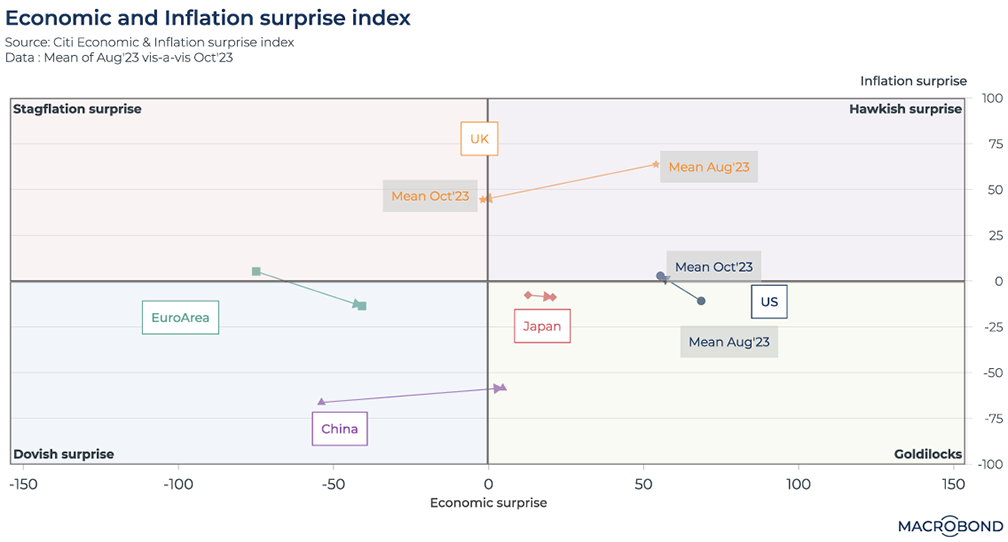
United States
US economic resilience in 2023 has been backed by strong employment numbers. The JOLTS data held up in September, with the V-U ratio at 1.5. However, October non-farm payrolls (150,000) fell short of estimates, with the unemployment rate rising to 3.9%. Two-year Treasury yields softened in anticipation of an economic slowdown.
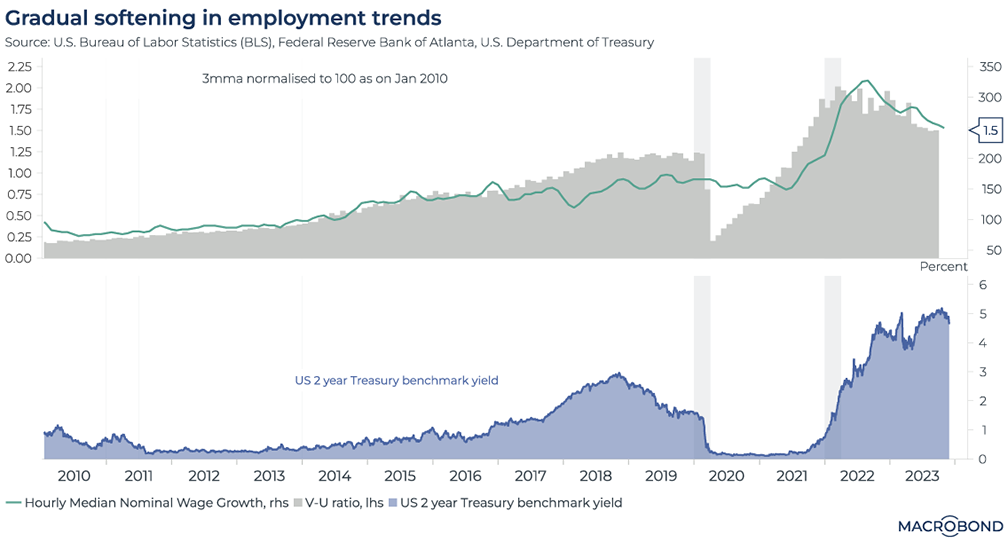
Europe
M3 growth has typically led inflation trends, with the highest correlation being a 22-month lag observed over the past two decades. While M3 is now shrinking, the last leg of inflation returning to target (2%) might take some time.
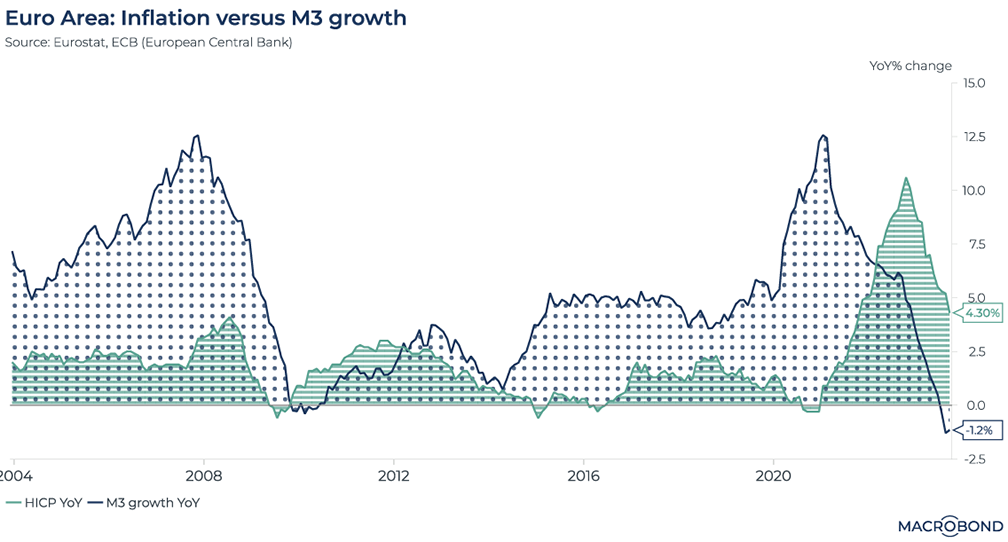
Amid the fight against inflation, higher borrowing costs for households and non-financial corporations and inverted borrowing costs overall (meaning it’s cheaper to borrow long-term than short-term) suggest that near-term investments could likely continue to see a drag.
United Kingdom
The labour market is losing steam. Wage growth is trending lower than the recent three-year average. Job listings index is at 113 –lower than the 2022 mean of 127 and the 2018 mean of 120. Credit and debit card spending is higher, but mostly due to staples (cost-push inflation) at 112; it’s much lower for discretionary spending, hinting at the impact of the cost-of-living crisis.
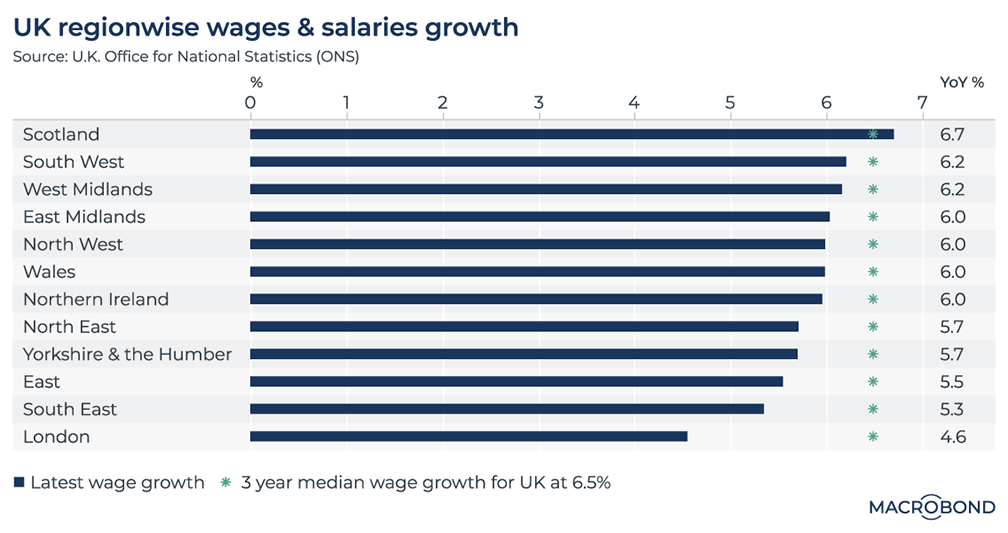
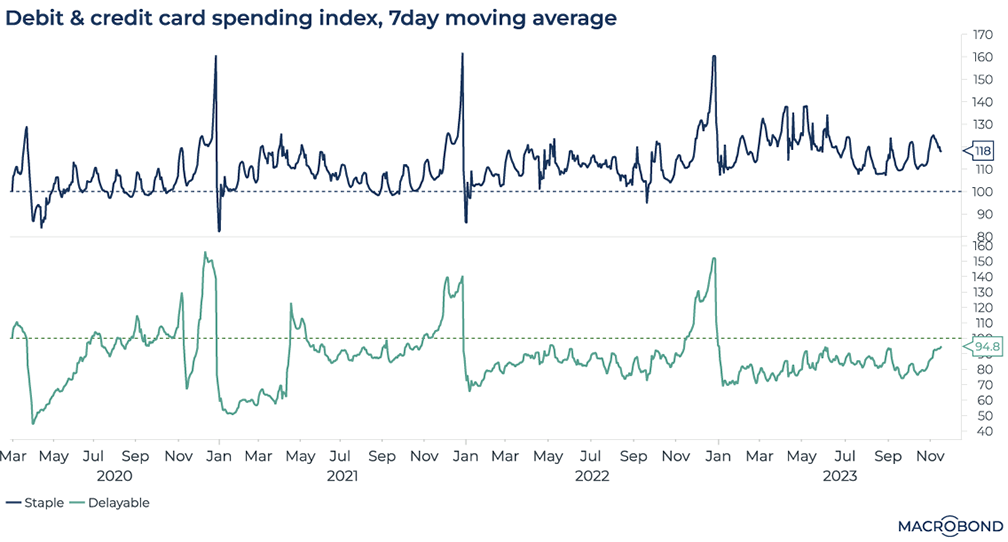
Japan
The Bank of Japan is being flexible in its approach to yield curve control, shifting its language to call the formerly upper bound of 1% a “reference.” Sustained depreciation pressure on the yen and increases to the inflation diffusion index further support a gradual move away from the current ultra-accommodative policy.
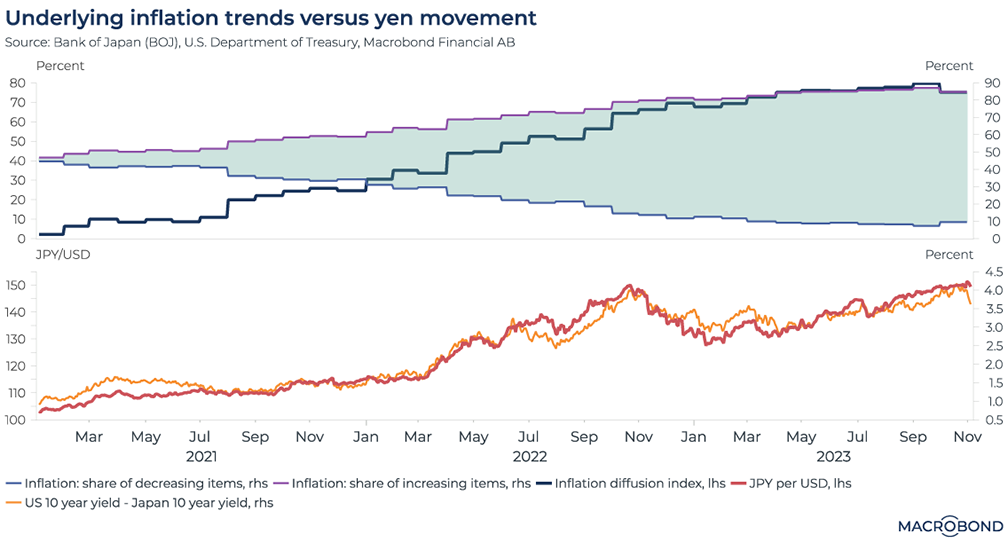
China
Trouble in the real estate sector can be seen in data trends for regional employment in construction. The 2020s – with a majority of provinces posting negative year-on-year average employment growth in this sector – are starkly different from the 2010s.
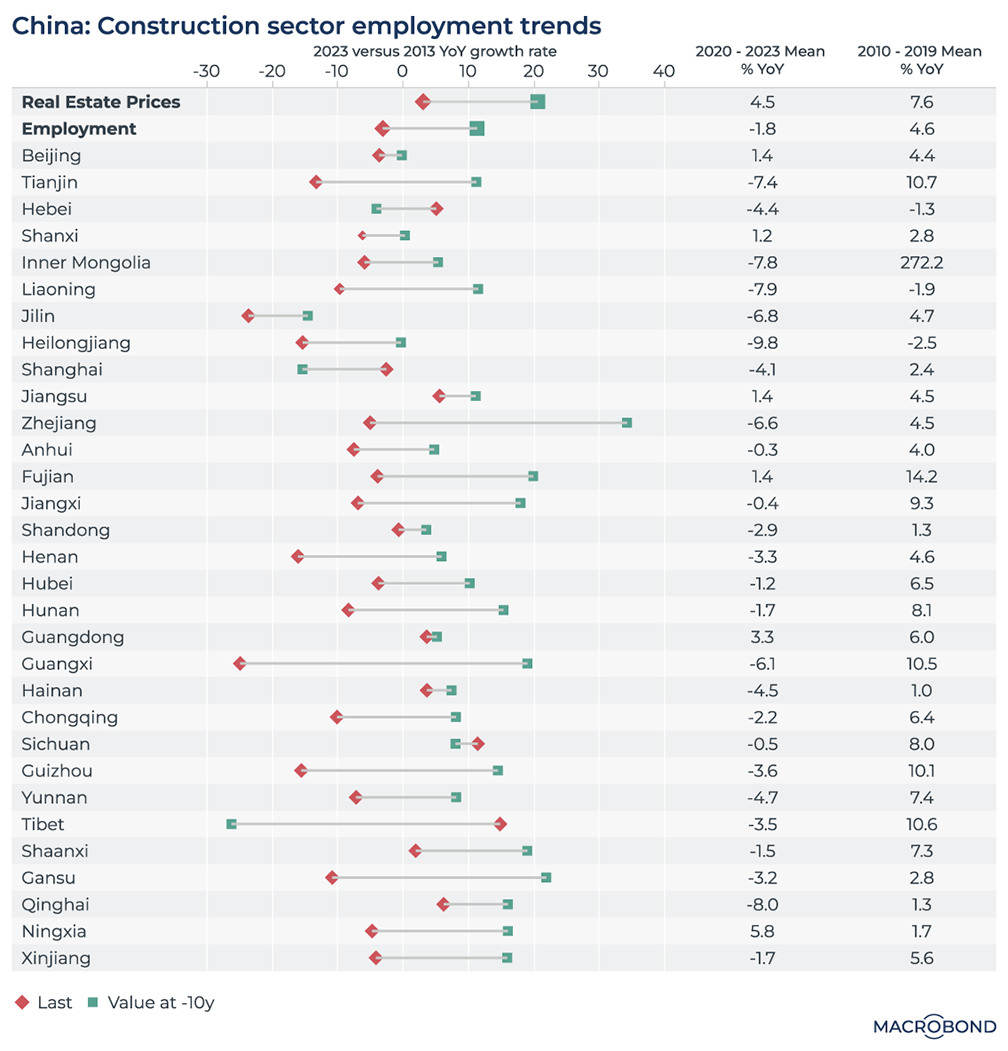
Conclusion: Trends in macro, market, high-frequency and alternative data can allow us to gauge the extent of policy transmission and can help make crucial inferences about policy inflection points.
Current pricing in the Fed fund futures market implies an 85% chance that the Fed’s ‘pivot’ has likely arrived, with rate easing to commence by June 2024. For the ECB, futures indicate an 80% likelihood of rate cut as soon as April. The first BoE rate cut is approximately priced in for August.
1 topic
.png)
Macrobond delivers the world’s most extensive macroeconomic & financial data alongside the tools and technologies to quickly analyse, visualise and share insights – from a single integrated platform. Our application is a single source of truth for...
Expertise
.png)
Macrobond delivers the world’s most extensive macroeconomic & financial data alongside the tools and technologies to quickly analyse, visualise and share insights – from a single integrated platform. Our application is a single source of truth for...
.png)